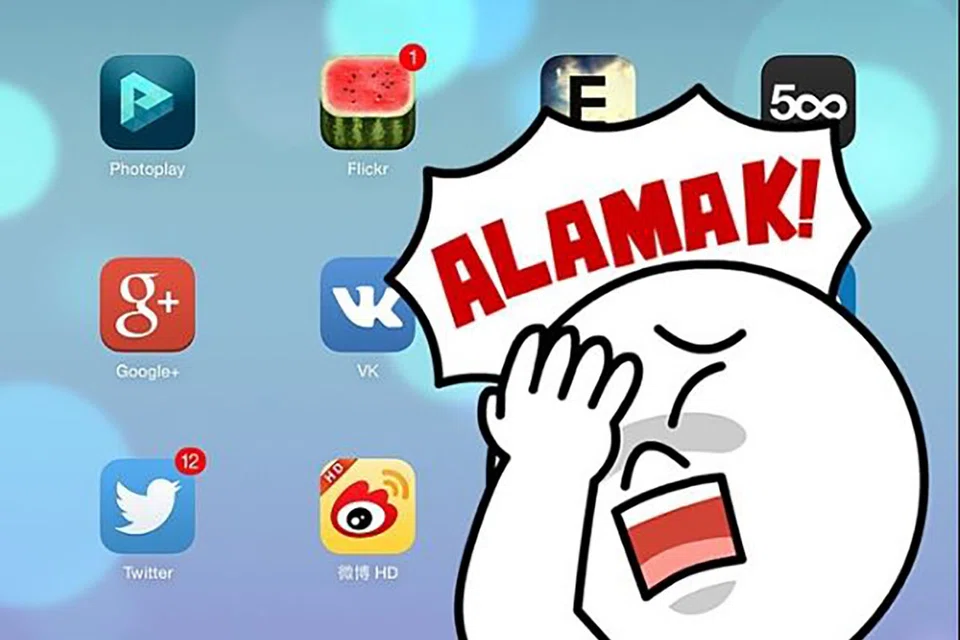Instead of saying or texting OMG, use the Singlish word “alamak” the next time you want to express shock or frustration.
A report published in The Straits Times on March 8 revealed that an inaugural study by language-learning company Preply found that this Malay word is the most popular Singlish term here.
What’s more, using it will earn you some points with Singaporeans.
Preply’s language expert Sylvia Johnson explains: “Getting up to speed on the local slang is a big part of learning a language and fitting in with the locals. It demonstrates not just linguistic competence but also cultural sensitivity.”
Try also to use words like “makan”, which means to eat in Malay, and common fillers such as “lah, lor, meh and leh”, typically used for emphasis, and as a suffix, in local speech.
Among the other top Singlish words in Preply’s findings were “paiseh”, which means embarrassed or shameful; “kaypoh”, meaning nosy; and “shiok”, for something enjoyable or delicious.
Alamak was also in the spotlight after it was humorously used by pop star Taylor Swift’s dancer Kameron Saunders during a recent performance at the National Stadium.
It earned him thunderous applause from the appreciative audience.
It is not always common for slang words to become popular. For instance, while 66 per cent of the survey’s respondents were able to use alamak correctly in a sentence, only 35 per cent were able to do the same with “slay”.
Despite not being used much by the older generations, slay, which means to do a job exceedingly well, is the most understood of the slang words adopted by Gen Z – a term that refers to those born in the late 1990s to around 2010.
For the record, Preply surveyed more than 1,500 Singaporeans aged between 16 and in their 50s.
Of course, there are people who shun slang, and admittedly, it did take a long time for Singlish to be seen as reflective of Singapore’s multiculturalism, with its roots in the Malay, Tamil, Chinese and English languages.
The patois also achieved a certain degree of legitimacy with the inclusion of Singlish words in the Oxford English Dictionary. In 2016, this venerable lexicon added “aiyoh”, commonly used to express dismay, and “aiyah”, which could express derision or joy, among other Singlish words and phrases to its list.
Even then, you’ll have to “wait long long” for Singlish to compete with the King’s English. This Anglicised version of a Hokkien phrase means it’ll never happen.



